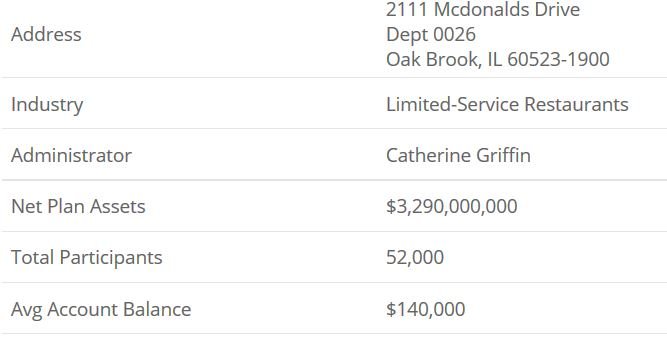Sure, we all know some good and some bad employers, but they aren't all bad.
5 Employers With Generous 401(k) Matches - US News
McDonald's. The company that invented extra-large fries and soda provides many of its employees with a supersized 401(k) match. McDonald's matches each dollar an employee contributes to the 401(k) plan with three dollars, up to the first 1 percent of pay. For employees age 21 and older who have been with the company for at least a year, the company also matches a dollar for each dollar saved on the next 4 percent of pay.
From further googling I see there is a 20 hours minimum you need to work to qualify for 401(k), profit sharing, and the stock purchase plan. Seems reasonable to me.

